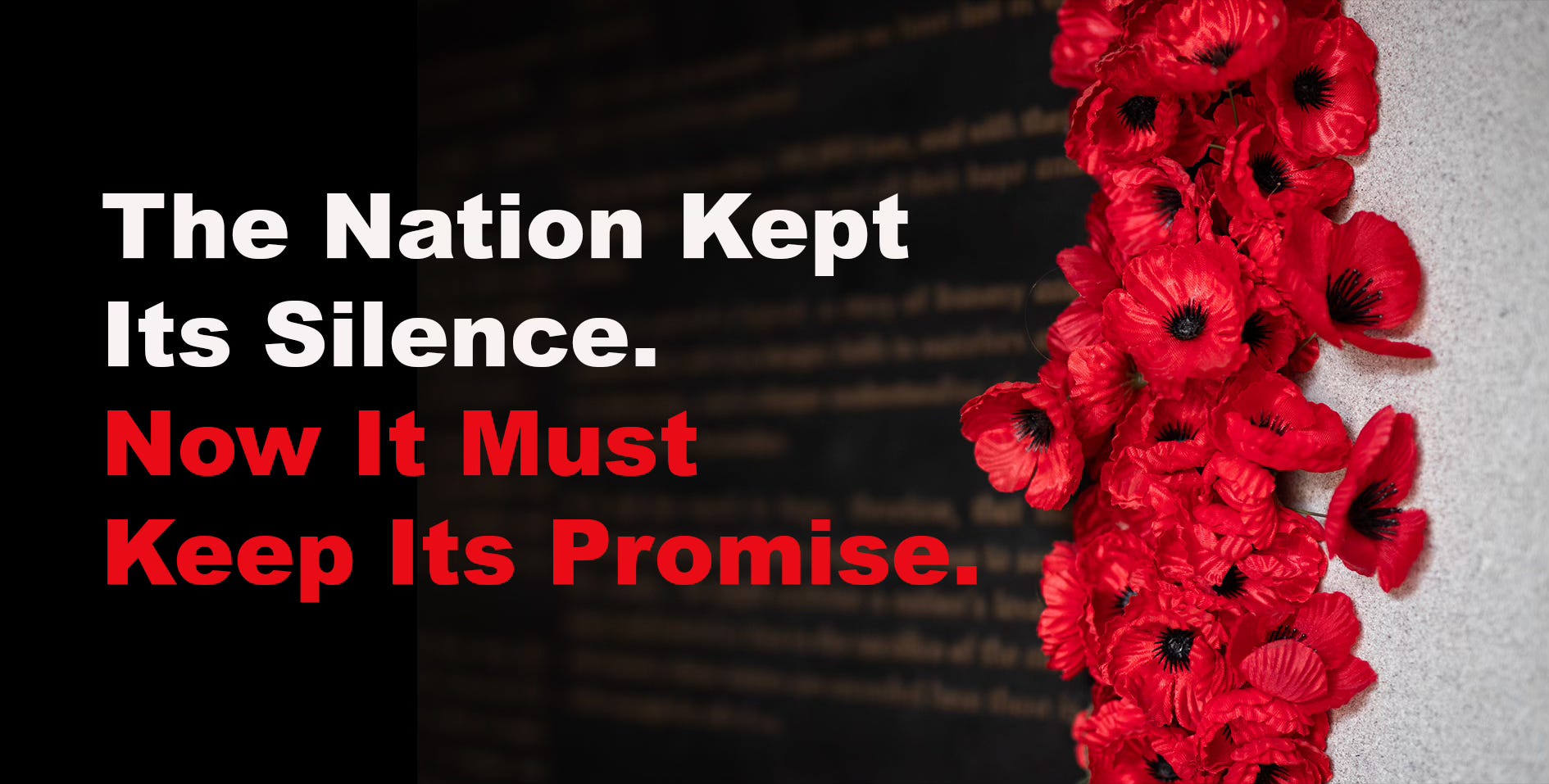We Remembered in Silence. Now We Must Speak for Those Who Served
For 38 years 250,000 served in Operation Banner. Today, elderly veterans face prosecution while former terrorists walk free with immunity. Britain's military covenant is breaking.
Yesterday, the nation stood at memorials across Britain, observing a moment of silence and honouring those who never came home. Today, it’s time to speak for those who did — particularly the veterans of Operation Banner, whose service in Northern Ireland has become a source of persecution rather than pride.
The Reality Veterans Face
More than 250,000 British servicemen and women served in Northern Ireland during Operation Banner — the longest continuous deployment in British military history. They faced daily threats from an enemy who wore no uniform, followed no rules of war, and deliberately targeted off-duty personnel and their families.
Over 700 service personnel never came home.
Many more returned as changed men and women.
Today, veterans in their seventies and eighties face reinvestigation and potential prosecution for split-second decisions made decades ago under fire. Meanwhile, those who planted bombs and ambushed patrols received letters guaranteeing they would not face prosecution.
This is neither justice nor reconciliation. It is the abandonment of those who served.
The Principle at Stake
Military service requires a unique covenant. The nation orders young men and women into danger, asking them to make life-and-death decisions in circumstances most citizens cannot imagine. In return, the nation promises to stand by them.
That covenant is breaking.
When veterans face unlimited legal jeopardy whilst their former adversaries walk free, when elderly soldiers must sell homes to fund legal defence, when those who served honourably live in fear of the dawn knock — our nation has failed them.
This is not about placing service personnel above the law. Those who commit crimes should face justice. But justice delayed by fifty years is justice denied. Justice applied selectively is not justice at all. It is a mockery.
What Must Change
Parliament must act immediately to end the civil litigation harassment that has become the real punishment. While criminal prosecutions may be unlikely, elderly veterans face decades of vexatious civil claims. The process itself—repeated court appearances, reliving trauma, defending actions from half a century ago — destroys lives.
With witnesses dead and evidence degraded beyond use, fair proceedings are impossible.
Three reforms are essential:
1. Automatic statutory time limits matching regular limitation periods
2. Complete indemnification for all veterans facing claims arising from military service, and
3. End foreign involvement in investigating British forces until those states account for their own documented role in facilitating terrorism.
The MOD’s own analysis confirms the Republic of Ireland provided “safe haven” to terrorists from 1969 through the late 1980s. Until Dublin opens its archives about training camps, weapons storage, and the 93% of extradition requests it rejected, it totally lacks any moral authority to investigate anyone.
The Broader Failure
This issue extends beyond Northern Ireland. It speaks to how the nation values service itself. Young people considering military careers watch how yesterday’s veterans are treated. Allied nations observe how Britain honours — or dishonours — its promises to those who serve. Adversaries note whether the country protects those who protected it.
When Northern Ireland veterans are failed, it sends a message to today’s service personnel: your country will abandon you when it is politically convenient. That message corrodes military effectiveness more surely than any budget cut.
A Matter of Leadership
Military commanders who served in Belfast, Londonderry, and Armagh understand what was asked of these young men and women. They were sent onto streets where every doorway could hide a sniper, every vehicle might contain a bomb. They were asked to show restraint when colleagues fell beside them, to maintain discipline when provoked, to represent the best of Britain in the worst of circumstances.
They delivered — for 38 years.
Through patience, professionalism and at terrible cost, they helped create space for peace.
That peace exists today because uniformed service personnel held the line when society was tearing apart.
The Moral Obligation
Some will argue that this issue is too complex, too contentious, and too risky for politicians to tackle, given their other priorities. But leadership means doing the right thing, especially when it’s difficult.
Others will claim that addressing veterans’ concerns undermines peace. This misunderstands reconciliation.
True reconciliation requires honest acknowledgement of all who suffered — including those who served in uniform.
Peace built on injustice to veterans is neither stable nor honourable.
The Path Forward
This is not about refighting old battles or reopening settled questions. It’s about basic decency towards those who served when called. The government has the power to act immediately. The Opposition has the responsibility to support just measures regardless of party advantage.
This appeal transcends party politics.
It comes from an understanding of duty and the debt the nation owes to Operation Banner veterans. That debt compounds daily with interest measured in anxiety, illness, and despair.
Yesterday, the nation remembered the fallen in dignity and silence. Today, it must insist that the living be treated with equal respect.
Future remembrance will ring hollow if the persecution continues of those who survived the very service the nation claims to honour.
The solution is straightforward: statutory time limits, automatic indemnification, and reciprocal accountability.
These are not unreasonable demands.
They are the minimum a decent nation owes those who served.
Political leaders must act — not eventually, not after consideration, but now.
Every day of delay is another day of injustice. Veterans in their eighties don’t have time for political convenience.
They kept faith with the nation.
The nation must keep faith with them.



At yesterday's Remembrance Sunday parade and service, as the rain beat down outside, our village hall was packed as never before. The two minute silence was highlighted with cries from babes in the arms of their young mothers. Y'know what? The Great British General Public gets it. Yet our political leaders don't. 😡
Ok, let’s sort it.